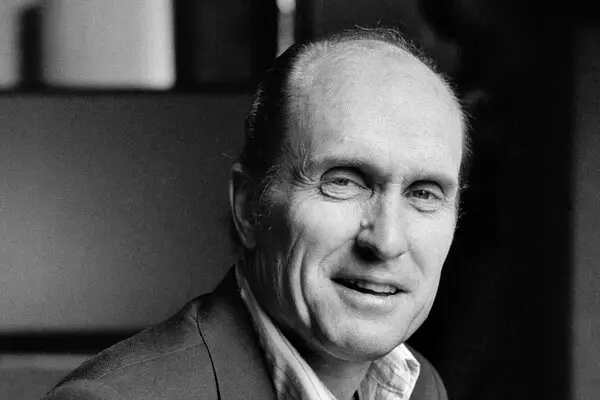The Academic Staff Union of Universities (ASUU) has strongly criticized the Federal Government’s Nigerian Education Loan Fund (NELFUND) scheme, describing it as a policy that treats education like a profit-making enterprise instead of a public good.
ASUU President, Professor Chris Piwuna, said the approach prioritizes commercial considerations over the social purpose of education, undermining fairness and access for Nigerian students.
Speaking on Channels Television’s The Morning Brief on Thursday, Piwuna argued that providing loans rather than grants to universities reflects a troubling shift toward market-driven education policy.
“Our initial position has been that what they call loans should have been grants to universities. But over time, the government has seen education as a profit-making, a marketplace kind of thing,” he said.
ASUU Calls for Education Grants Over Student Loans
The ASUU leader explained that the union had earlier advised the government to adopt a grant-based model to strengthen the university system, but those recommendations were ignored.
He stated that the government’s insistence on pushing forward with NELFUND shows a lack of commitment to sustainable educational support.
“They have decided to run it through NELFUND. We have given them advice. They have the right to accept our advice or not.
They have decided to go with it as a loan. We want it to succeed. We wish them the best,” he said.
Piwuna added that while ASUU wishes the government’s initiative success, the union remains skeptical about its long-term benefits for students.
He noted that true educational investment requires consistent funding to institutions, not debt-based support to students.
The professor said grants would help ensure quality education and stability across all universities rather than shifting financial burdens to students.
Students Reluctant to Take NELFUND Loans
The ASUU president also questioned the effectiveness of the NELFUND programme, pointing to low participation as evidence that students are unwilling to incur debt for their studies.
“Government may be talking about the number of students that they have that have applied, the amount of money that they’ve paid. I think we have about a little over 2 million students in universities across the country.
The last figure I saw was about 300 or 400,000 of those who have applied,” he said.
He noted that this means roughly 1.6 million students have not applied, which cannot be explained by financial self-sufficiency.
“Is that to say that 1.7 million, 1.6 million students in Nigeria have a means of supporting themselves, and so they do not need NELFUND loan? That’s certainly not the case,” Piwuna added. According to him, most students are simply afraid of repayment obligations.
“The point is that students are themselves afraid of taking loans. Students are afraid of how they will repay these loans. Students are not happy that their education cannot be supported by the government unless they take a loan,” he noted.
ASUU Rejects NELFUND Board Position
In a sign of its disapproval, ASUU declined an invitation to serve on NELFUND’s governing board, saying the union prefers to maintain its independence.
Piwuna said ASUU would rather observe from the sidelines than participate in a policy it fundamentally disagrees with. “We are not part of NELFUND. We have turned down their offer to make us board members in NELFUND,” he said.
Despite this, he emphasized that the union is not seeking confrontation with the government. “All we can say to them is that we wish them well. We hope it succeeds.
We pray it succeeds because they say it is in the interest of students and their future. We want Nigerian students to have a great future. We want them to complete their studies.
If that works for them through NELFUND, fine,” he added.
Tuition Fee Hikes and the Call for Harmonisation
Professor Piwuna also raised concerns over the sharp rise in tuition fees across Nigerian universities, some of which have reportedly increased by as much as 1,000 percent.
He said the growing disparity in charges for similar courses across federal institutions reveals the need for regulation and fee harmonisation. “You pay about N125,000 to study medicine in one federal university, while another federal university charges nearly N400,000 for the same course.
There’s a clear need for harmonisation if they truly want a fair system,” he said.
ASUU maintains that government-provided grants would have helped manage these disparities more equitably. “But we still maintain that grants would have been the best way to manage these increases that you are talking about,” he said.
Piwuna suggested that funding should be structured according to university categories, first-generation, second-generation, third-generation, and specialized institutions, to promote uniformity and fairness across the education system.
Seeking a Balanced Approach
While ASUU remains critical of the NELFUND framework, the union insists it is not opposed to reform but to policy models that could deepen inequality.
Piwuna reaffirmed that ASUU supports any initiative that genuinely improves access to education, provided it does not commodify learning. “We want it to succeed,” he said, “because Nigerian students deserve the best possible chance to learn without fear of debt.”
By calling for grants instead of loans, ASUU has reignited a national conversation about how Nigeria funds its universities and supports its youth.
As rising tuition fees collide with limited government aid, the country faces a defining test of whether education will remain a social right, or become a costly privilege.

























